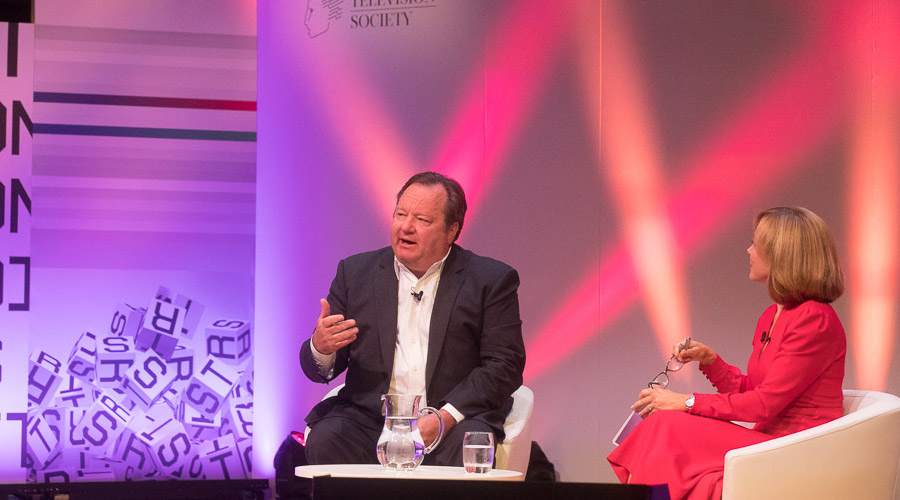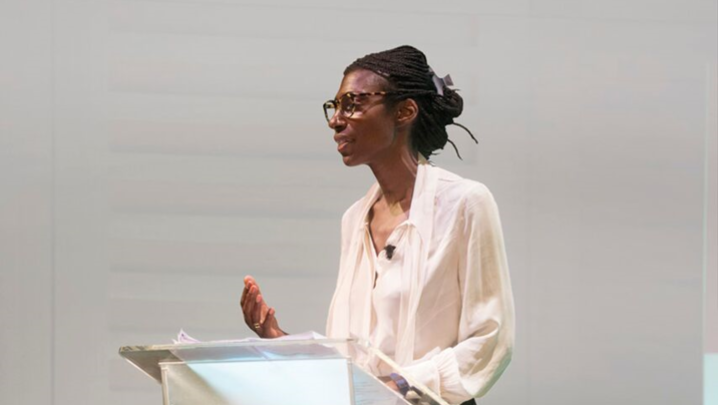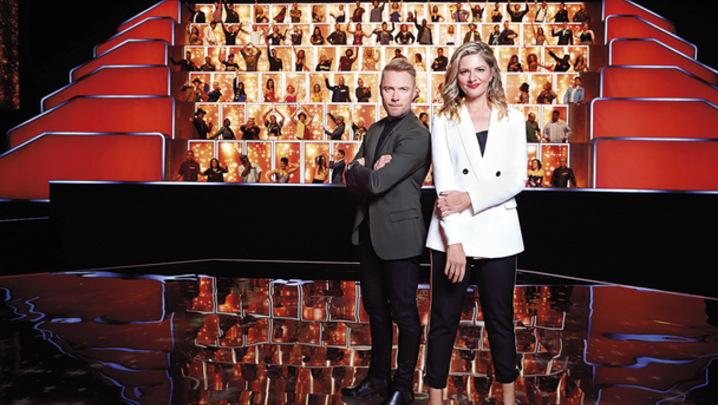Viacom chief Bob Bakish explains how he is reinventing the company for streaming. Tara Conlan reports
It was Viacom founder Sumner Redstone who coined the phrase “content is king”. The company’s President and CEO, Bob Bakish, is also associated with a term that defines a media era: he dubbed the streamers, such as Amazon and Netflix, “frenemies”. He used the description recently to explain the fact that, although big producers and channel owners fear the streamers for eroding viewing figures, they can also make money by supplying the tech giants with shows.
He was appointed to his post in 2016 with the backing of Redstone’s daughter and Viacom’s Vice-Chair, Shari, who is reportedly keen for CBS and Viacom to merge.
Today, the company has more than 300 TV channels, which it claims reach 4.3 billion subscribers across more than 180 countries. Its portfolio includes MTV, Nickelodeon, Comedy Central and the UK’s Channel 5. Its shows range from Geordie Shore to 13 Reasons Why to forthcoming MTV series The Royal World.
However, the company has had “a bunch of issues” to address, acknowledged the fast-talking Viacom veteran. Having been at Viacom for more than 20 years, many of them overseeing its international business, he said he had experienced the company through different ages.
Since 2016 (when Bakish took over from Philippe Dauman), he has focused on turning round its “performance issues”.
Areas he cited for improvement included distribution, ratings and Mission: Impossible-maker Paramount Pictures, which lost $500m in 2016. The group was now “in a much better place… our ratings have improved the last four quarters running… we’ve grown share every quarter”.
Bakish continued: “The world is changing and we’ve been working on evolving the company towards new businesses with new revenue streams.”
The launch of Viacom Digital Studios, the acquisition of youth digital network Awesomeness, and “our growing studio production business” were helping Viacom “mark a new chapter in our history”, he claimed.
What are the opportunities for a content-driven company such as Viacom, asked his interviewer, Channel 5 News anchor Sian Williams. “At the core, consumers all around the world are consuming more content, broadly speaking, than ever before,” replied Bakish.
He highlighted Jersey Shore in the US, which recently commenced a new run. On its first night, it was the number-one TV show, beating The Big Bang Theory.
Another avenue that is beginning to thrive is short-form content. Since Bakish took over in the third quarter of 2016, he said the company had tripled the number of video streams it delivers.
Its events, such as the MTV Video Music Awards, create moments that can be shared. At the recent VMAs in the US, “we had 285 million streams run that day”.
Williams asked if he was pushing the company more towards short-form, smartphone-friendly content.
“There’s growth in many areas,” he said. “There’s share to be taken in traditional linear television, and you can see us doing that in the US, and you see Channel 5 performing well this quarter here [in the UK].”
Other arenas for expansion include YouTube and Facebook.
“What we’re focused on is how we maintain a presence in the traditional ecosystem… but, simultaneously, ensure that we’re represented in these other spaces”.
The rise of Facebook, Amazon, Apple, Netflix and Google, and their thirst for their own original content, brings both challenges and opportunities.
Successes at the Emmy awards, and the rise of Paramount Television (“which didn’t exist four years ago and this year is a $400m business and next year will be a $600m business, as we go from nine series in production to 16”) were two indications of Viacom’s revival.
Alongside this, the group produced shows such as 13 Reasons Why for Netflix and Jack Ryan for Amazon, proving that Viacom was making the most of the opportunities, said Bakish.
One of the liveliest moments of the session occurred when Bakish announced that MTV was making a new reality show for Netflix. Williams said she would not be a good journalist if she did not ask him more about the show. “And I wouldn’t be a good CEO if I didn’t tell you that you’ll have to wait!” was the reply.
To help Viacom traverse the fast-changing media landscape, Bakish has focused the company on its “flagship brands: Nickelodeon, MTV, BET, Comedy Central and Paramount”. But there were also important local ones, such as Channel 5, said the former strategy consultant.
Each of the global brands has a full “multi-platform” presence and add-ons such as events and consumer products. Viacom is also targeting new outlets, such as Snapchat, while “maintaining the largest collection of our product in the pay-TV ecosystem”, where “we still see very significant time spent”.
But how does Viacom make money out of getting its content on Snapchat?
It is still early days, admitted Bakish: “Right now, it’s more about reach and consumption than monetisation. We have multi-platform sponsors for the MTV VMAs in the US and so, as part of that, they will get impressions in the digital native space as well.”
The acquisition of the “young, female-skewing content company” Awesomeness will help the group make content “at a very attractive price point”, which it will market and sell. “If we want to monetise content on social networks, the best way to do that… is branded content, where you integrate messaging into the content.”
Product placement, Williams pointed out, is highly regulated on TV in most countries. “[But] it’s almost exclusively self-regulating” online, responded the Viacom chief.
He called for a more level playing field, pointing out that traditional TV channels such as Nickelodeon were not allowed to advertise high-fat foods but online companies were. The issue should be discussed by Ofcom not just for the sake of media companies but “also for the good of audiences”.
In the face of such disparity, and the problem of fake news, Bakish suggested that it was “pretty clear that, over time, we will get regulation. What it looks like and how quickly it comes, those are all valid questions, but the world needs to move in that direction, as responsibility follows consumption.
“Monetisation is evolving and varies… If you focus on content… monetisation will follow.”
Tickets to events, adverts and subscription revenues are among the revenue streams that Viacom will continue to drink from.
The CEO said that Viacom would consider setting up its own kind of streaming service, but it was not interested in “creating another Netflix. We see that space as becoming crowded.”
Touching on the long-running power struggle that has prevented Viacom merging with CBS, he was asked if he was convinced that such a move would make Viacom stronger.
He responded that there had been a “lot of discussion about scale” but emphasised the benefit of looking for “virtual scale through partnership”.
As an example, he cited Channel 5 teaming up with Sky Media on ad sales, which had brought “benefits without deploying capital”.
After paying tribute to Viacom’s international networks, which “haven’t been in need of turnaround”, Bakish was asked for his thoughts on the UK TV industry. He was very positive: “We’re thrilled to be a long-standing member of the British TV industry.
“We obviously increased our participation when we acquired Channel 5, and I would do that again today. Even though Brexit happened.”
In Session Two, Bob Bakish, President and CEO of Viacom, gave the ‘International keynote’ speech and was interviewed by Channel 5 News presenter Sian Williams. The producer was Helen Scott.







